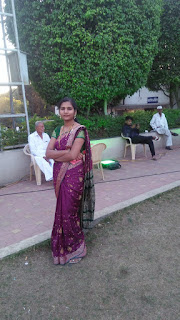The History of English Poetry
English poetry has a long and distinguished history. Poets began writing in Old English as early as the seventh century, but the most famous Old English poem, Beowulf, has been dated to the eight century. Beowulf deals with the adventures of a brave warrior in Pre-Christian Europe. He kills two monsters, becomes a king, and then kills a dragon before dying of his wounds. Beowulf is an example of a heroic epic, a long narrative poem that mixes history and legend. There were other heroic epics written at this time, but only parts of them have survived. Poetry from this time very rarely rhymed, but often used alliteration, in which a sound is repeated throughout each line.
There were many poets writing in English during the Middle Ages. Poetry from this time was often religious or romantic in nature. The long poem Sir Gawain and the Green Knight is about a quest taken up by one of the knights of King Arthur’s court. It deals with the common romantic themes of honour and chivalry. Piers Plowman, a poem written by William Langland, is an allegory about the search for a religious life. Perhaps the most famous poet from this period is Geoffrey Chaucer, whose collection of poetic stories, The Canterbury Tales, is still taught to children in schools.
After the Renaissance, English poets began experimenting with new styles of writing. The poet Thomas Wyatt wrote sonnets, an Italian style of poetry in which each poem consists of fourteen rhyming lines. Other poets, such as Thomas Campion, wrote songs in which their poetry was set to music. Edmund Spenser returned to the old, heroic style when he wrote The Faerie Queen, a long poem dealing with the adventures of several questing knights. John Donne, who is considered one of the Metaphysical Poets, wrote intelligent poetry in which themes such as love and death were explored through metaphors.
At the end of the eighteenth century, English poetry went through a Golden Age. Many poets from this time belonged to the Romantic movement, in which creative expression was given absolute importance, and many of the constraints and rules of earlier poetry were done away with. Lord Byron was a poet and adventurer, and wrote masterpieces such as Don Juan and Childe Harold’s Pilgrimage before he died in Greece fighting against the Ottoman Empire. John Keats wrote some of the most beautiful love poems in the English language, and died when he was only twenty-five. Samuel Taylor Coleridge suffered from poor health and depression, and was addicted to opium, but wrote astonishingly complex and captivating poems such as the famous Rime of the Ancient Mariner. Percy Bysshe Shelley wrote poetry influenced by classical mythology, and was an early advocate of pacifism and vegetarianism. He died in a storm at sea before he was thirty years old. The lives of many Romantic poets were characterised by tragedy, but they wrote some of the most enduring and popular poems in the English language.
After the Romantic poets came the Victorian poets and the Pre-Raphaelites. Alfred, Lord Tennyson was the Poet Laureate of England for many years, and wrote lyrical poems characterised by perfect and precise use of the English language. Elizabeth Barrett Browning wrote religious poetry with a modern bent. William Butler Yeats was an Irish poet whose poems were full of symbolism as well as beautiful imagery. His poems were often inspired by Irish legends, and he was awarded the Nobel Prize in Literature in 1923.
The twentieth century saw the birth of the Modernist movement in English poetry. T.S. Eliot wrote shockingly original poems that dealt with bleak and existential themes, but were still strangely beautiful and compelling. Ezra Pound was a friend of T.S. Eliot, and another prominent poet who was concerned with the clarity and precision of the English language. Perhaps the most famous poet from this period was Dylan Thomas. He wrote at the same time as the Modernists, but isn’t considered a Modernist poet. His poems are known for their unique imagery and virtuosic use of words and rhythm.
The appeal of poetry is universal, and for people who are learning English as a second language, English poetry can be easier to read than novels, and more interesting than articles or essays. Epic poems such as Beowulf and The Faerie Queen are probably not a good place to start, but poems by the Romantic and Victorian poets are often simple and easy to understand, while still being examples of beautiful and refined English.




No comments:
Post a Comment